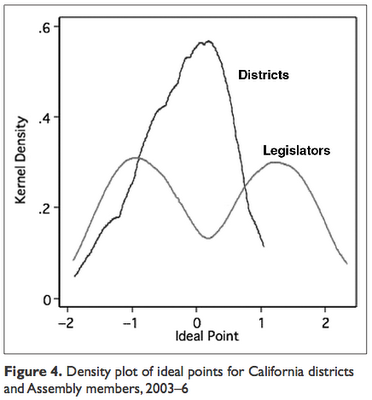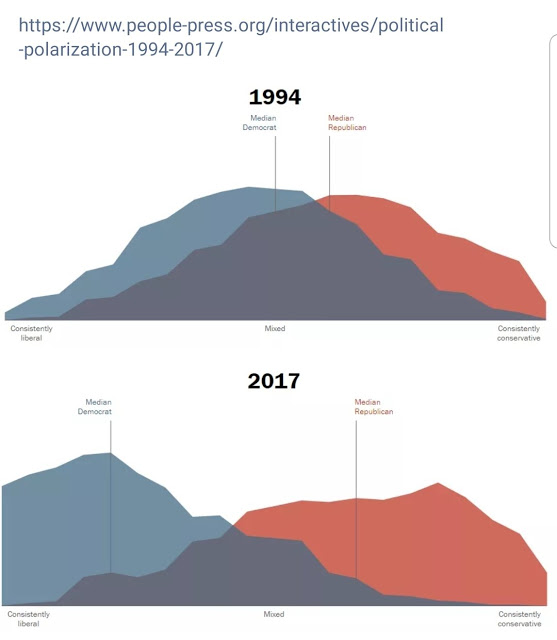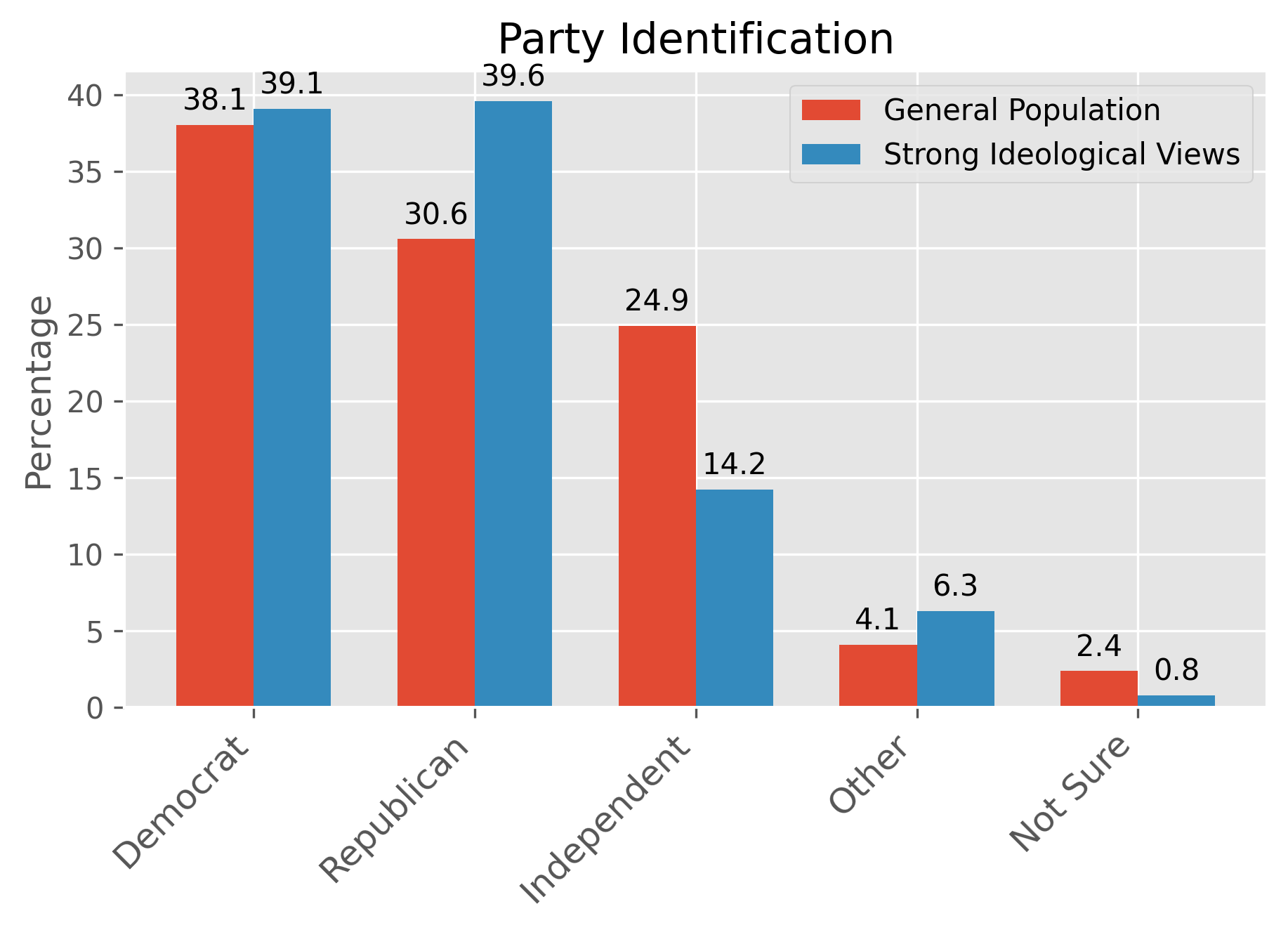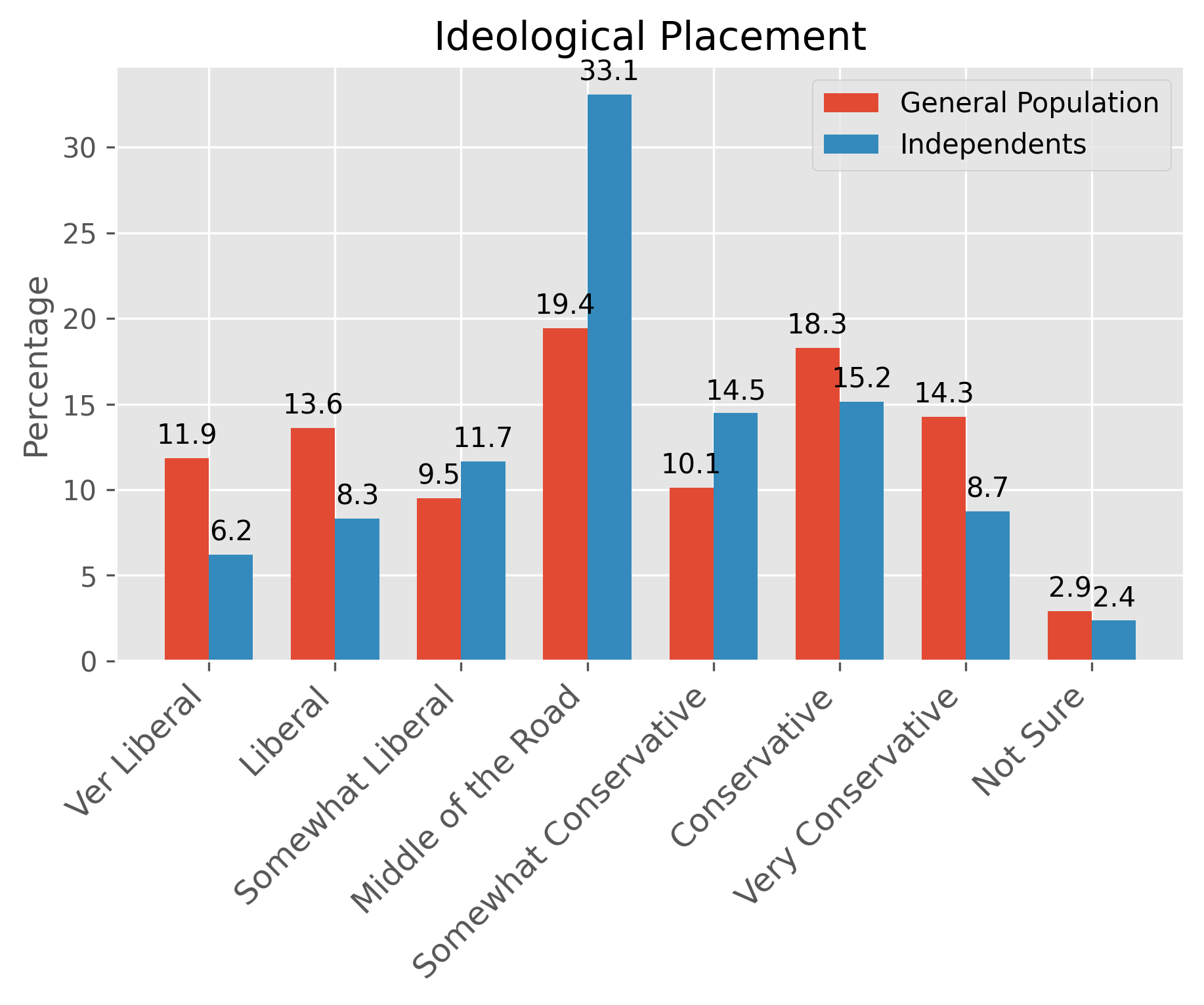I asked another question that sounds similar. I was thinking about political independents. I was wondering if they are less likely to have strong views on issues. This would make sense because political parties have largely become ideological coalitions within the US.
What I didn't realize at the time when I said was that I was talking about being "engaged" as ideological. For example, I am engaged and don't call myself an independent for that reason. I don't know anyone at my school who does out of about seven people.
In other words, I am asking if independents are more centrist than people identifying directly with a party. Gallup polling says that Independents are significantly more likely to say they are moderates.
I feel that they tend to be less ideological and in turn engaged because of the fact that they don't identify with a party.



